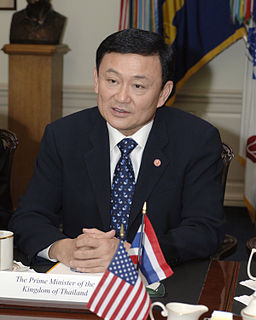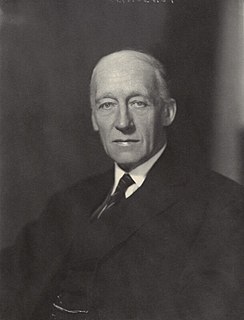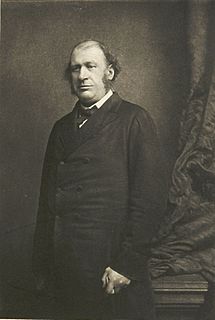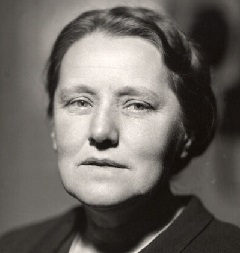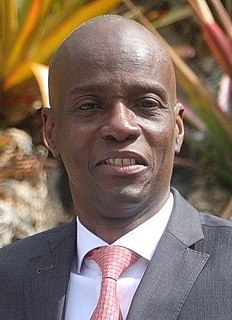Top 193 Parliamentary Quotes & Sayings - Page 3
Explore popular Parliamentary quotes.
Last updated on November 21, 2024.
If [Respulicans] can't get rid of [Obamacare], they're going to have to tell their base, we've been lying to you for the last five years. So they're willing to go to almost any extent to do that. That's unusual, in fact I think it's unique in the history of modern parliamentary systems. And it's very dangerous for the country and for the world.
It would appear that the traditional parliamentary democracies can offer no fundamental opposition to that automatism of technological civilization and the industrial-consumer society, for they too are being dragged helplessly along by it. People are manipulated in ways that are infinitely more subtle and refined than the brutal methods used in post-totalitarian societies.
I've come up through the ranks of this parliamentary party and let me tell you the principles that have guided me on that journey since my first election 25 years ago: Loyalty to the party, service to our country, and a determination to always do my best for the people. They are principles that still guide me.
Resolutions expressing Parliamentary approval of every Treaty before ratification would be a very cumbersome form of procedure and would burden the House with a lot of unnecessary business. The absence of disapproval may be accepted as sanction, and publicity and opportunity for discussion and criticism are the really material and valuable elements which henceforth will be introduced.
The World Trade Organization, The World Bank, The International Monetary Fund and other financial institutions virtually write economic policy and parliamentary legislation. With a deadly combination of arrogance and ruthlessness, they take their sledgehammers to fragile, interdependent, historically complex societies and devastate them, all under the fluttering banner of 'reform'.
We discovered that in connection with these figures the German national simpletons and money-grubbers of the Frankfurt parliamentary swamp always counted as Germans the Polish Jews as well, although this dirtiest of all races, neither by its jargon nor by its descent, but at most only through its lust for profit, could have any relation of kinship with Frankfurt.
I joined the SDP as a founder member a few days after my 18th birthday in 1981. I was a councillor, activist and parliamentary candidate for the SDP and its successor party, the Liberal Democrats, for 14 years before joining Labour when Tony Blair became leader and abolished Labour's old clause IV - committing to general nationalisation - in 1995.
A state does not simply fall apart as a result of depression... [Weimar Germany] was not destroyed by economic depression or widespread unemployment, though these naturally contributed to the atmosphere of doom, but because the Weimar Right was resolved to abolish the parliamentary state in favour of a vaguely conceived authoritarian state.
I look upon parliamentary government as the noblest government in the world, and certainly one most suited to England. But without the discipline of political connection, animated by the principle of private honor, I feel certain that a popular assembly would sink before the power or the corruption of a minister.
Parliamentary government is simply a mild and disguised form of compulsion. We agree to try strength by counting heads instead of breaking heads, but the principle is exactly the same... The minority gives way not because it is convinced that it is wrong, but because it is convinced that it is a minority.
It excites world wonder in the Parliamentary countries that we should build a Chamber, starting afresh, which can only seat two-thirds of its Members. It is difficult to explain this to those who do not know our ways. They cannot easily be made to understand why we consider that the intensity, passion, intimacy, informality and spontaneity of our Debates constitute the personality of the House of Commons and endow it at once with its focus and its strength.
It is a matter of record that in the German Election of 1933, the Communist Party was ordered by its leaders to vote for the Nazis - with the explanation that they could later fight the Nazis for power, but first they had to help destroy their common enemy : capitalism and its parliamentary form of government.
Some countries have a parliamentary republic, some are presidential republics and some are still monarchies, but no one sees them as not being democratic. In some countries regional leaders are appointed from the centre and in others they are elected. In Russia, the president is elected through direct secret ballot, and in the United States, the president is elected through a system of electoral colleges.
The American system is, in many ways, more difficult, certainly far more expensive and much longer than a parliamentary system, and I really admire the people who subject themselves to it. Even when I, you know, think they should not be elected president, I still think, well, you know, good for you I guess, you're out there promoting democracy and those crazy ideas of yours.
Fundamental questions are being asked about the future of the Eurozone and therefore the shape of the EU itself. Opportunities to advance our national interest are clearly becoming apparent. We should focus on how to make the most of this, not pursue a parliamentary process for a multiple choice referendum.
The socialist parties of all countries are duty bound to fight energetically for the implementation of universal women's suffrage which is to be vigorously advocated both by agitation and by parliamentary means. When a battle for suffrage is conducted, it should only be conducted according to socialist principles, and therefore with the demand of universal suffrage for women and men.
On NAFTA, the Canadian Parliament... is united. We have our partisan differences. When we hold the government to account, as is our role in our parliamentary system, we will absolutely point out what we think they should be doing differently. But when it comes to our relationship with the United States, we do speak with one voice.
[I believe in] the throne...parliamentary institutions...private enterprise and individual opinion against the socialization of the state...equity in the distribution of public burdens and strict maintenance of public faith with the creditors of the state [and] a fresh guarantee of peace by an alliance with France and...Belgium for the defence of our common interests against unprovoked attack.
Parliamentary democracy is, in truth, little more than a means of securing a periodical change in the management team, which is then allowed to preside over a system that remains in essence intact. If the British people were ever to ask themselves what power they truly enjoyed under our political system they would be amazed to discover how little it is
The major western democracies are moving towards corporatism. Democracy has become a business plan, with a bottom line for every human activity, every dream, every decency, every hope. The main parliamentary parties are now devoted to the same economic policies - socialism for the rich, capitalism for the poor - and the same foreign policy of servility to endless war. This is not democracy. It is to politics what McDonalds is to food.
There should be some other provisions in the Constitution whereby if the Government is not functioning well, it can be dealt with. In a parliamentary democracy, this should be done only by Parliament. The prime minister should be answerable only to Parliament and it should only be Parliament that can install him or remove him.
The boycott of parliamentary institutions on the part of anarchists and semianarchists is dictated by a desire not to submit their weakness to a test on the part of the masses, thus preserving their right to an inactive hauteur which makes no difference to anybody. A revolutionary party can turn its back to a parliament only if it has set itself the immediate task of overthrowing the existing regime.
There are a few minority governments in Europe, but I think the largest member state would be well-advised to establish a government that can rely on a clear parliamentary majority. Think about EU summits. If the chancellor were forced to obtain support from parliament for each and every detail, it would slow the work of the EU.
The principle of Parliamentary sovereignty means neither more nor less than this, namely, that Parliament thus defined has, under the English constitution, the right to make or unmake any law whatever; and, further, that no person or body is recognised by the law of England as having a right to override or set aside the legislation of Parliament.
Canadians should realise when they are well off under the Monarchy. For the vast majority of Canadians, being a Monarchy is probably the only form of government acceptable to them. I have always been for parliamentary democracy and I think the institution of Monarchy with the Queen heading it all has served Canada well.
As every newspaper reader, liberal activist, or parliamentary junkie knows, the overarching barrier to most of Obama's agenda is the abuse of the filibuster in the Senate. In fact, several of Obama's second term priorities are not ideas in search of a majority - they are majorities in search of an up-or-down vote.
There is an urgent need to-day for the citizens of a democracy to think well. It is not enough to have freedom of the Press and parliamentary institutions. Our difficulties are due partly to our own stupidity, partly to the exploitation of that stupidity, and partly to our own prejudices and personal desires.
This is not the kind of country where you would feel comfortable if you were opposed to democracy, parliamentary law, independent courts and so I would say to people who don't feel comfortable with those values there might be other countries where they'd feel more comfortable with their own values or beliefs.
Christians living in a democracy should always vote if they can. If they cannot in conscience bring themselves to vote for any of the candidates on offer (in the UK quite often there are several candidates for a parliamentary seat) they might consider deliberately spoiling the ballot paper as a sad protest which still says 'but I believe in being involved'.






